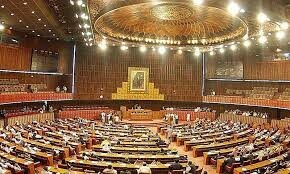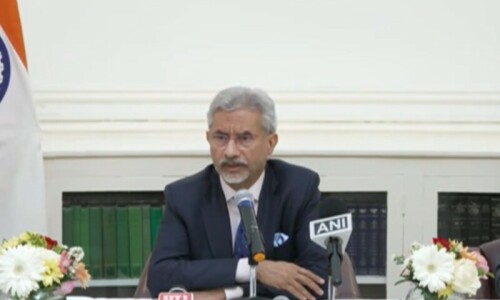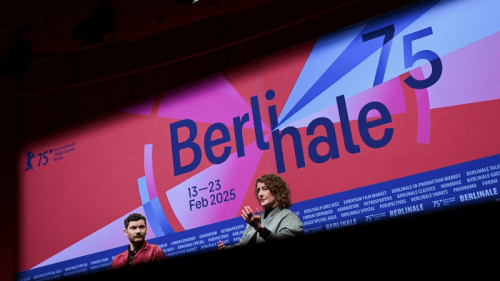• PTI urges SC to set aside changes to Elections Act, restrain ECP from doling out seats to others
• ECP wants verdict reviewed, says it ‘ignored’ constitutional provisions to facilitate one party
ISLAMABAD: As the Election Commission of Pakistan (ECP) moved the Supreme Court to seek a review of its July 12 judgement in the reserved seats case, the Pakistan Tehreek-i-Insaf (PTI) approached the apex court against retrospective amendments to the Elections Act 2017 — yet to be signed by the president — a day after both houses of parliament approved the bill.
The National Assembly and the Senate had approved the Elections (2nd Amendment) Bill 2024, amid protests by the PTI, who termed it an attack on the top court and said they would move the court against these changes.
In a hurriedly moved petition, the PTI asked the court to set aside the law, even though President Asif Ali Zardari has yet to give assent to the bill. Moved by PTI Chairman Barrister Gohar Ali Khan through his counsel Salman Akram Raja, the petition asked the court to restrain the ECP from allocating seats for women and non-Muslims to other parties.
“Such reserved seats, as aforesaid, may be directed to be allowed to the PTI and its candidates whose names are contained in the lists filed before the ECP in accordance with the judgement of the Supreme Court dated 12.07.2024, and such candidates may be declared elected to the reserved seats for women and non-Muslims,” the petition read.
According to the petition, past and closed transactions that have taken place in terms of the Constitution and the Elections Act prior to the enactment of the amendment cannot be undone through the retrospectivity purportedly assigned to the new law.
The petition contended that Section 3 of the Elections Act sought to add restrictions not contained in the Constitution with respect to the submission of lists of candidates for reserved seats under Article 51 and Article 106 of the Constitution.
The recognition of the PTI by the Supreme Court as a political party eligible for a proportionate share in the quota for reserved seats and for its nominated and eligible candidates to be elected on the basis of lists filed by the PTI in accordance with the judgement cannot be overridden by section 3 that has purported to amend Section 104 of the Elections Act, the petition contended.
A returned candidate who was wrongly declared to be an independent candidate by the ECP and thereby compelled to join a political party other than their party could not be prevented from declaring his affiliation to the actual political party, the petition argued.
In a separate petition, the ECP asked the apex court to revisit its judgement over the reserved seats since it had granted relief to a political party — the PTI — that had not even approached the court or the commission to claim any relief.
The petition claimed that the SC presumed certain facts, which were not established or ran contrary to the pleadings and admitted facts on record. Before the ECP, the PML-N as well as the PPPP had filed separate petitions against the July 12 judgement.
The ECP petition recalled that 80 returned candidates who contested the Feb 8 elections as ‘independents’ submitted declarations that they had joined the Sunni Ittehad Council (SIC). The petition pleaded that SIC had not submitted a list of candidates for reserved seats for women and non-Muslims under Article 51 and Section 104 of the Elections Act 2017.
The independent-returned candidates took the decision to join SIC, fully armed with these facts, and were aware of the legal consequences of their decision. “Thus the court cannot presume otherwise,” the petition said.
Seemingly, the top court presumed that of the 80 independent candidates, 41 did not remain unaffiliated by their own choice and granted them an opportunity to remedy the same by retrospectively declaring a party affiliation, the petition argued. The ECP said this presumption found no basis in the pleadings, especially when it was considered that 39 other independent candidates did, in some manner or other, declared a party affiliation.
The directions in the July 12 judgement, the petition argued, have clearly been passed without considering that such directions discriminate in favour of a single political party by extending concessions and relaxing certain articles of the Constitution.
The ECP claimed that the relief provided to accommodate a particular party violated Article 25 of the Constitution as all members must be treated equally and in accordance with the prevailing law. The rights afforded under Article 17 to the PTI cannot be held paramount to those of the SIC, the commission said. The petition argued that the Supreme Court had created an avenue, having no sanction in the law and the Constitution, to convert independent status to political party membership.
The July 12 judgement effectively re-set decisions taken by returned candidates and which stood crystallised, and such re-setting finds no place in either the law or the Constitution, the ECP contended.
Published in Dawn, August 8th, 2024















































Dear visitor, the comments section is undergoing an overhaul and will return soon.